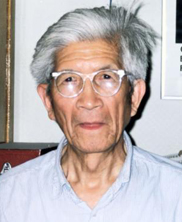
Xu Liangying
By Christopher Bodeen
The Associated Press
BEIJING, China (AP) — Xu Liangying, a renowned Chinese rights advocate, physicist, and translator of Einstein, has died in Beijing. Xu was 92.
Xu’s death on Monday, Jan. 28 was widely reported on academic discussion boards and confirmed by a doctor reached by phone at Haidian Hospital’s intensive care unit in Beijing’s university district, where Xu lived for many years. The doctor declined to be identified by name and no cause of death was given.
Xu began translating Einstein in 1962 after being forced to leave his job as editor of a leading science journal for having criticized the policies of the Communist Party led by Mao Zedong.
In all, Xu was the main translator of the three volumes of “The Collected Works of Einstein in Chinese,” and initiated or wrote numerous letters and petitions defending human rights.
Born in 1920 in eastern China’s Zhejiang province, Xu showed an early talent for physics and studied under Wang Ganchang, later to help lead China’s atomic bomb program. His college years coincided with Japan’s World War II invasion of much of China, and Xu became radicalized by the realization of human suffering and inequality, joining the Communist Party before the 1949 revolution when it was still an underground organization.
After a stint at the Chinese Academy of Sciences, Xu denounced Mao’s crackdown on intellectuals in 1957 and was himself labeled a rightist and fired from his government job. Forced to move to the countryside, he began the translation project as a way to remain intellectually stimulated, even though Einstein had been criticized by many communists for the philosophical bent of some of his work.
Xu’s manuscripts were confiscated during the chaotic 1966-76 Cultural Revolution. Yet he recovered them eventually and brought them to publication in 1975, after which he regained his position at the academy and gradually became an advocate for human rights, democracy, free speech, and academic freedom.
Xu was confined to occasional house arrest following the bloody 1989 crackdown on pro-democracy demonstrations centered on Beijing’s Tiananmen Square, but continued his rights advocacy.
“For a lifetime’s advocacy of truth, democracy, and human rights — despite surveillance and house arrest, harassment and threats, even banishment — through his writings and publicly speaking his mind,” the society wrote in its dedication. (end)



